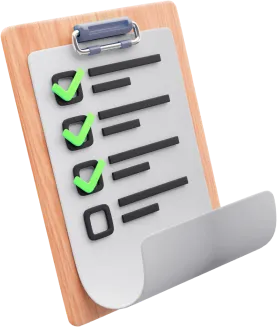Should you self-manage your San Francisco rental home? Here are some important considerations before deciding

San Francisco is one of the most affluent cities in America and home to some of the world's most desirable real estate. San Francisco homeowners who can effectively navigate the city's complex rental market can enjoy a steady income stream and long-term growth potential for their real estate portfolio.
If you own a home in San Francisco, it's essential to understand the pros and cons of self-managing versus hiring a professional property manager. We'll cover the important considerations to factor into the decision-making, outline self-management benefits, and share best practices for this approach. In self-managing your property, prepare to learn about some unique challenges of this rental market alongside the standard demands of property management. The best option ultimately depends on your specific property and your capacity.
A broad overview of San Francisco's real estate environment
Whether you choose to self-manage or hire a property manager, it's essential to have a solid understanding of San Francisco's rental market and local environment. The San Francisco region is one of the most expensive and lucrative real estate markets in the United States, with average rent for San Francisco at $3,397 a month for an average apartment size of 740 square feet.
Broad trends in San Francisco's rental market for homeowners to evaluate are:
- In San Francisco, 65% of households rent their homes versus 45% region-wide.
- More than 60% of renters live where the city can control rent. This means that the rent can be raised very little, if at all. The number of rent-controlled units almost doubles rental units not under rent control.
- San Francisco has a lot of old housing. About 80% of the City's housing was built before 1980.
Home to leading technology and consumer companies and startups, a deep and diverse history, and a thriving modern culture, San Francisco is one of America's most iconic cities. San Francisco is home to a diverse population, with residents from all over the United States and the world. You can read all about San Francisco's demographics, seasonal trends, housing trends, and employment trends in our 2022 guide.
Property management statistics in San Francisco
San Francisco property management encompasses everything from preparing the property to be up to market standards, finding and screening tenants, collecting rent, conducting repairs, performing maintenance, and adjusting to local laws and regulations. Three main challenges of self-managing property in San Francisco in 2022 are high turnover rates, strict rental rules, and budgeting accurately for repairs and maintenance. Homeowners in San Francisco frequently hire professional management companies to help navigate these complex tasks. According to a recent Buildium report, the number of rental owners who use a property manager rose to 64% during the pandemic. It settled at a new high of 61% as of mid-2021. In addition, 25% of rental owners working with an external property manager do so primarily to ensure their properties are being run compliant with current San Francisco regulations.
Doorstead has helped manage hundreds of homes in San Francisco. Learn about the advantages of working with Doorstead as your property management service.

When self-managing your property is the right option
Rental homeownership or property management is more hands-on than, for example, investing in the stock market. With the latter, you can invest funds into a mutual fund as a passive investment. However, generating rental profit from home needs more effort from the homeowner if self-managing. Although it's difficult, many rental homeowners have successfully managed a property in San Francisco. The most important determinants to deciding if you should self-manage your investment home are property size and type, property location, and personal bandwidth.
The first determinant to consider is the size and type of your property. The lot size, the physical condition of the buildings, and floor plans vary significantly across San Francisco and by neighborhood. Discerning accurate property and monthly rental values for your property is challenging but key in helping you benchmark the rest of your management strategy. You can enter your address into Doorstead for a pricing analysis of your property compared to millions of recent data points. Vacancy rates in San Francisco also vary by unit size and building age. Larger units rent out for higher rates and experience less churn. According to housing data from San Francisco Planning, smaller housing units like studio apartments and one-bedroom units tend to have higher vacancies. Small rental property owners can manage their own units, but it becomes more challenging to handle everything by yourself as the number of properties or size of each unit grows. Older buildings have costlier or more specific renovations that might be harder to scout and manage without solid expertise. Older housing stock also has higher vacancy rates than new construction housing. Through Doorstead, you can get an immediate pricing assessment of your property and when exactly we can help it start generating rental income.
Another consideration when assessing self-management or working with a property manager is the location of your property. If you live near your rental property, it'll be easier to handle ongoing maintenance and repairs and check up on your building as needed. Additionally, if your property is located in a desirable area, it could be easier to attract high-quality tenants by setting reasonable prices. If your property is located in a high-crime area, it's essential to have someone who can keep an eye on things and handle any issues that may arise. With crime mapping services, websites, or phone apps, you can check recent crime reports by location. San Francisco property managers typically have a network of security guards and other professionals they can call on if there's an issue at your property. Another important consideration when self-managing rental property in San Francisco is that specific neighborhoods are highly regulated, requiring you to abide by strict local regulations.
Finally, you'll need to decide how much bandwidth you have to perform day-to-day management of your San Francisco property. If you work full-time, are raising children, or have another significant commitment, you may not have the time to handle every aspect of property management yourself. Read Doorstead's complete guide to property management to get an overview of what will need to go into managing your home and evaluate if you can balance it alongside other careers, households, and personal responsibilities. If you oversee the property yourself, you'll be responsible for everything from finding tenants and screening them to handling repairs and maintenance issues that could occur all day or night. If you have some background in property management or have plenty of time to learn and troubleshoot when problems arise, self-management could be an ideal option. Otherwise, working with a property manager will take some of the day-to-day responsibilities off your plate.
Benefits to managing your property yourself
Self-management can be a lot of work, but it can also be enriching and an excellent skill to build.
Some key benefits to self-managing your rental property in San Francisco include:
- Complete control over pricing, tenant selection, repairs, and other factors that may impact your bottom line.
- Developing experience in property management that can be applied to other rental properties or investments in the future.
- Saving money on fees and other costs associated with working with a San Francisco property manager.
- Ability to directly build relationships with tenants and customize your tenant communications.
If you believe self-managing your San Francisco property is the best approach, check Doorstead's dos and don'ts of managing property in San Francisco!

How to effectively self-manage your own rental property in San Francisco
Be an expert on the neighborhood your property is in
San Francisco property management is a unique challenge that requires experience and knowledge of the local market. To market to and attract high-quality tenants, familiarize yourself with the amenities and attractions in your home's neighborhood and read about popular areas to live and rent in San Francisco in 2022.
Anticipate and be able to navigate challenges unique to San Francisco
There are unique challenges that come with managing rentals in San Francisco. The three main ones are high turnover rates, budgeting for expenses, and adhering to strict rental laws and policies. We give an in-depth overview of the 3 unique challenges of renting in San Francisco and how to overcome them in a separate guide.
Incorporate general property management best practices
After factoring in regional differences and local challenges, there are general best practices for managing your rental property. For example, invest in marketing, be responsive and communicative to any issues or concerns tenants may have, and perform regular repairs and maintenance to maintain your property's value on the market. These include staying organized and keeping up with routine maintenance tasks, screening tenants carefully to avoid bad matches, fostering positive relationships with tenants, and finding reliable contractors for repairs and other needs.
You can learn more by checking out Doorstead's complete guide to property management or our comprehensive guide to renting your home.

Evaluating alternative options
If you are thinking about managing a rental property in San Francisco, consider all of your options and weigh the potential pros and cons. If you have experience with property management, live near the property in question, or are willing to take the time to troubleshoot as needed, self-management could be an excellent option for you.
If you need more assistance to handle all the responsibilities of managing a San Francisco rental home, alternative property management options are available. One option is to work with a local real estate agent who can help find tenants and handle monthly maintenance tasks like collecting rent and managing repairs. Another option is to outsource day-to-day operations to a professional property management company. We also have a guide on all the benefits of working with a professional San Francisco property management service.
Doorstead's expert team has worked with hundreds of property types in San Francisco and offers full-service property management. If you're debating between hiring a property management company or self-managing your home, Doorstead might be the right choice for you. Learn about the process of working with Doorstead, read testimonials from our homeowners, or enter your property address to get a pricing assessment from Doorstead.
Did you find this article on managing your rental home in San Francisco helpful? If so, please share it with your friends! And if you're looking for more helpful tips and resources on San Francisco property management, visit our blog.












.jpg)





















































































.avif)
